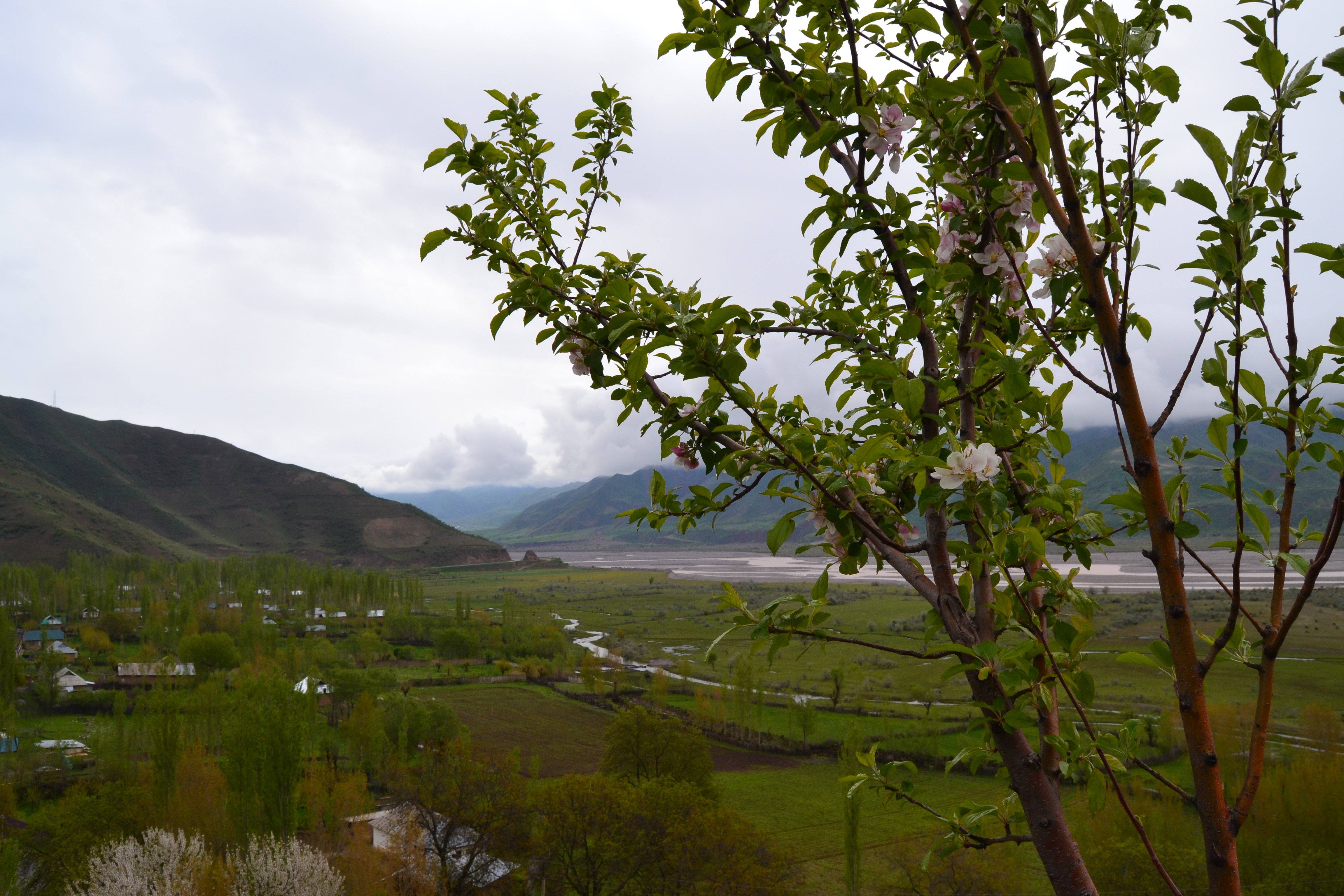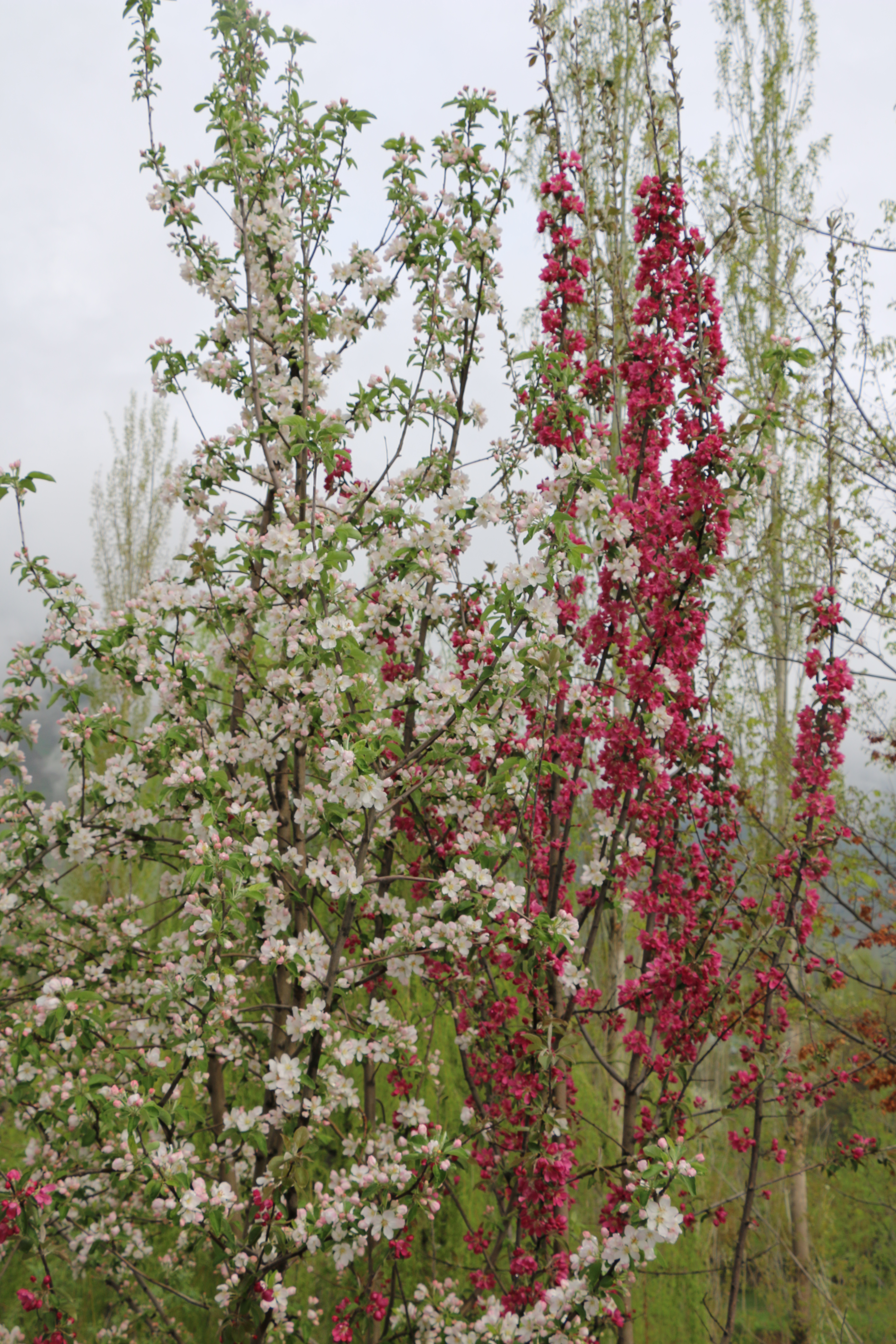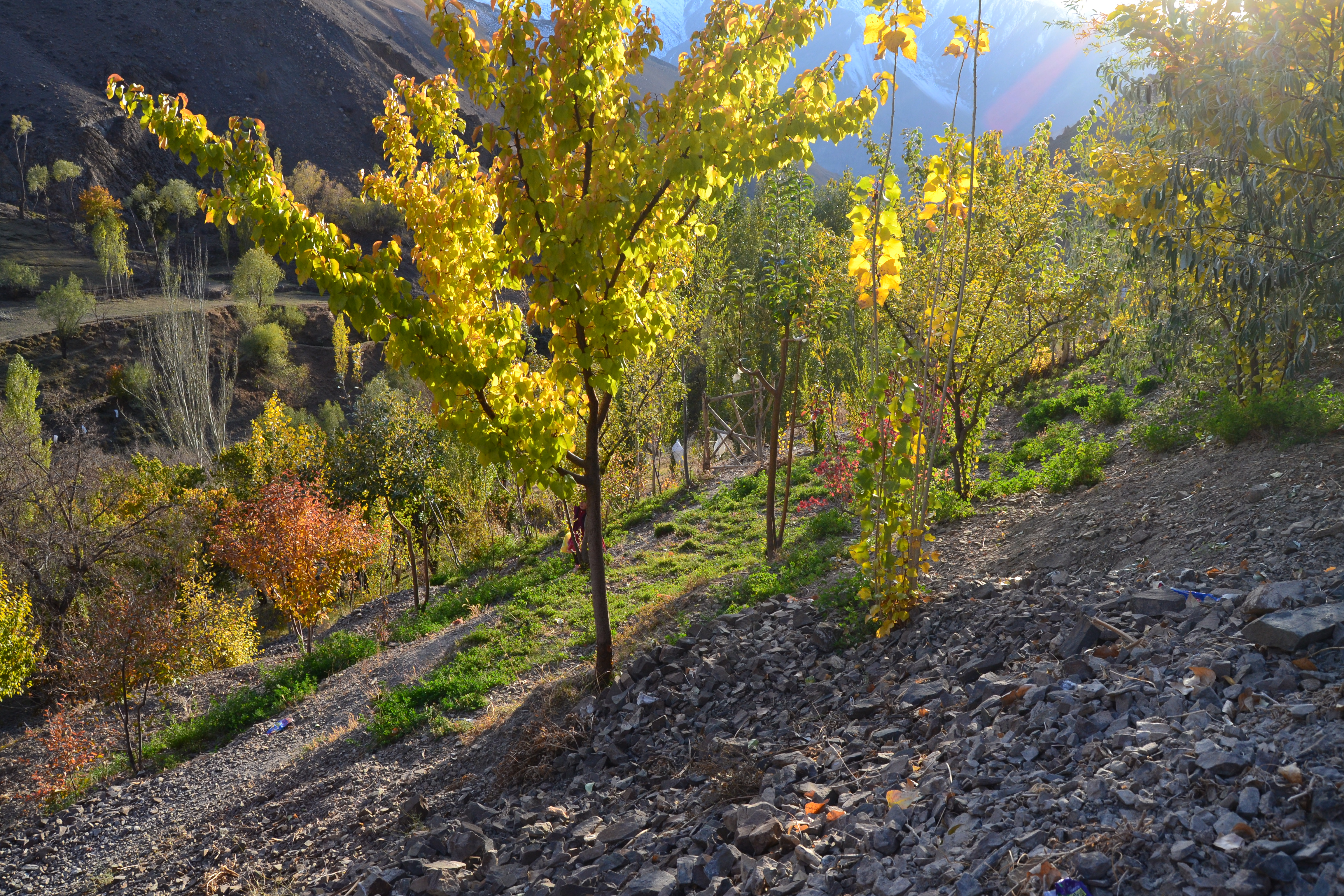



It is cheaper to establish a traditional or semi-intensive orchard with local varieties than an intensive one based on imported seedlings since locally produced plants are cheaper and fewer plants/ha (approximately 500-600 vs 2,600-3,125) are required.
Furthermore, a semi-intensive orchard system based on local varieties allows for better vegetable growing and fodder planting between the trees. This outweighs the disadvantage that orchards established with local varieties and grafted on local rootstocks enter production later than intensive ones (5-6 years vs 2-4 years).
Traditional varieties of fruit trees are normally better adapted to local climate conditions and are more resistant or tolerant to pests and diseases. That implies economic benefits as costs for applying pesticides are reduced considerably, production levels are stable, and less irrigation water is needed.
In addition, local varieties bear fruits much longer (30-50 years vs. 10-12 years). It is recommended to involve specialists and consult with local nurseries before beginning reproduction of fruit trees seedlings since grafting requires some experience. Local nurseries can establish collections of varieties for cutting scions and hand them over to interested fruit growers.
When reminded about the benefits of the local varieties of fruit trees and bushes during the knowledge exchange within farmers' field school training sessions, farmers tend to show interest in diversifying their orchards with these. Local nurseries or plantations established from local varieties such as the “apple park” in the Rasht pilot district of the project can serve as evidence and visually motivate the farmers to diversify their orchards with local varieties or varieties grafted on local rootstocks.
Promoting traditional varieties is challenging as these are often forgotten and thus hardly available. Local nurseries should be encouraged reproducing these varieties and farmers should be connected with them. In addition, farmers can be motivated to produce seedlings e.g. by establishing community–based small nurseries, concentrating on local varieties of fruit trees and bushes.
When farmers are planning to produce fruits from local varieties not only for own consumption but also for sale, a market assessment should be conducted.